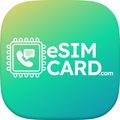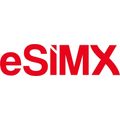Avec un budget abordable et une grande commodité, eSIM Card est un fournisseur de services eSIM en ligne. Avec des destinations de couverture dans plus de 200 pays, des eSIM locales, régionales et mondiales sont disponibles. Vous pouvez l'acheter pour une journée ou un an, et c'est vous qui décidez. Découvrez nos forfaits économiques et mettez fin aux tracas de la connectivité en voyage une fois pour toutes.

Avec un budget abordable et une grande commodité, eSIM Card est un fournisseur de services eSIM en ligne. Avec des destinations de couverture dans plus de 200 pays, des eSIM locales, régionales et mondiales sont disponibles. Vous pouvez l'acheter pour une journée ou un an, et c'est vous qui décidez. Découvrez nos forfaits économiques et mettez fin aux tracas de la connectivité en voyage une fois pour toutes.
Code Promo
Forfaits de données eSIM eSIMCard pour la Nouvelle-Zélande
Questions fréquemment posées
eSIMCard propose‑t‑il une eSIM à données illimitées pour la Nouvelle‑Zélande?
eSIMCard ne propose pas de eSIM de données à haute vitesse vraiment illimitées pour la Nouvelle‑Zélande. Tous les forfaits étiquetés « Unlimited » ont une allocation de données fixe — allant de 1 GB à 2 GB par jour — et, une fois ce plafond atteint, la vitesse des données est réduite à 512 kbps ou à 2000 kbps. Le nom « Unlimited » ne se réfère qu’à la période de validité ou à la disponibilité du tethering, et non à une utilisation illimitée des données.
Pour les voyageurs qui ont besoin d’une grande quantité de données sans plafonds, eSIMCard propose des plans à données fixes tels que 100 GB pour 30 jours à 92, 43 USD ou 100 GB pour 180 jours à 112, 73 USD. Ces options offrent une quantité substantielle de données avant toute limitation et peuvent être plus rentables pour les utilisateurs intensifs de données.
eSIMCard propose un eSIM de Nouvelle-Zélande avec numéro de téléphone et SMS?
eSIMCard ne propose pas d’eSIM de Nouvelle‑Zélande incluant un numéro de téléphone ou la possibilité d’envoyer des SMS. Le prestataire ne propose que des forfaits eSIM uniquement pour les données, de sorte que les utilisateurs ne peuvent ni passer d’appels vocaux ni envoyer de textos via le réseau de l’opérateur. Il est toujours possible de passer des appels et d'envoyer des messages via des applications VoIP telles que WhatsApp, Telegram ou iMessage sur la connexion de données.
Combien de forfaits de données eSIMCard propose-t-il pour la Nouvelle-Zélande ?
Le jeu de données disponible ne précise pas le nombre de plans eSIMCard pour la Nouvelle‑Zélande. Il ne fournit que des totaux globaux pour tous les fournisseurs et pays. En conséquence, le nombre exact de plans eSIMCard applicables à la Nouvelle‑Zélande ne peut pas être déterminé à partir des informations fournies.
Résumé avec Gen AI. Dernière mise à jour:




